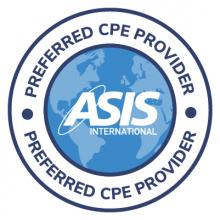Certificate in Peer Counseling
Peer Counseling Certificate Overview
The advanced practice certificate in peer counseling introduces you to the fundamentals of peer counseling, including building rapport, active listening, identifying mental health issues, advocacy, leading groups, teaching life skills, and providing referrals. You’ll also learn about the ethical aspects of the peer counselor relationship, such as maintaining appropriate boundaries and confidentiality.
In your studies, you’ll explore protocols related to working with peers who are experiencing crisis, mental illness and/or substance abuse, or who demonstrate signs of risk to self or others. The program incorporates the fundamentals of providing trauma-informed care, mental health first aid, and crisis management.
Program Highlights
Pathway to a Master’s
The credits from this certificate coursework can be applied toward earning your master of science degree in forensic behavioral science or forensic leadership administration.
Online Courses
The program is offered online giving you the flexibility to complete your coursework virtually and from a location of your choice.
In-Depth Learning
Analyze successful peer counseling models, interventions, and strategies by reviewing case studies and engaging in simulations.
Admissions
Learn About Admissions Requirements
Faculty
Get to Know Our Diverse Faculty
Degree Information
Curriculum Plan
Course One: Peer Counseling
This course introduces the fundamentals of peer counseling, including building rapport, active listening, identifying mental health issues, advocacy, leading groups, teaching life skills, and providing referrals. Additional aspects of the peer counselor relationship, such as maintaining appropriate boundaries and confidentiality, are also explored.
Course two: Complex Issues in Peer Counseling
This course will review protocols related to working with peers who are experiencing crisis, mental illness and/or substance abuse, or who demonstrate signs of risk to self or others. Fundamentals of providing trauma-informed care, mental health first aid, and crisis management are incorporated.
Course three: Peer Counseling with Specific Populations
This course allows you to explore the nuances of facilitating peer counseling with one or more populations, including veterans, firefighters, and those affected by domestic violence, chronic illness, substance abuse, disaster, and trauma. Appropriate similarities and differences in approaches will be reviewed, allowing the student to gain a framework for expanding to different sectors and contexts.
Links and Downloads
Frequently Asked Questions
Is this course taught online or on-campus?
The certificate program is offered online. All classes and coursework can be completed virtually, allowing you flexibility with your schedule.
Are scholarships and financial aid available?
Yes, there are private and public scholarships to help you meet the cost of your education and Alliant offers institutional scholarships for many of our students. Learn more about these scholarship opportunities here. Additional financial aid is available for those who qualify in the form of loans, grants, federal work study, and military aid. Learn more in our Financial Options Guide.
Why Alliant
At Alliant, our mission is to prepare students for professional careers of service and leadership and to promote the discovery and application of knowledge to improve lives. We offer an education that is accredited, focused on practical knowledge and skills, connected with diverse faculty and alumni, and aimed at the student experience.
Why CSFS
CSFS is dedicated to graduating rigorously educated and trained professionals who impact society, public opinion, and policy by applying science in preventing, investigating, and mitigating conflict and violence. CSFS is a corporate partner of the International Law Enforcement Educators and Trainers Association (ILEETA), and many of our advanced practice certificates are eligible for continuing education credit.

